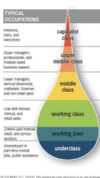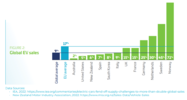- Joined
- 14 February 2005
- Posts
- 15,797
- Reactions
- 19,008
Logically the time to change is when the vehicle is replaced anyway.Then conveniently forgets the waste of throwing away perfectly good ice with huge embedded energy
For mainstream cars in round figures the average lifespan from new to scrapped is 20 years with very few survivors at the 30 year mark indeed most models basically are extinct at that point.
There’s no rational reason to be scrapping good cars to replace them, the fleet turns over anyway.
We didn’t force the scrapping of cars using leaded petrol or which have zero safety features but they’re essentially gone today even for the most common models.
A Charger or Kingswood for example would noticeably stand out on the road today despite being extremely common a generation ago.
Apart from enthusiasts the rest are all gone now indeed even a common at the time 1980’s car is rare at this point. For that matter even many 1990’s models are mostly gone - the once ubiquitous Excel isn’t at all common today despite huge numbers being sold at the time.


